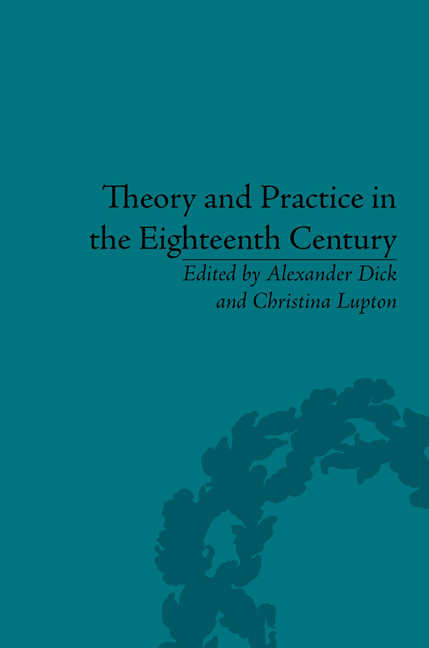Book contents
- Frontmatter
- CONTENTS
- Notes on Contributors
- Introduction
- I Writing Philosophy
- II Reading Hume
- III Thinking Literature
- 9 The Epistemology of Genre
- 10 The Primitive in Adam Smith's History
- 11 Can Julie Be Trusted? Rousseau and the Crisis of Constancy in Eighteenth-Century Philosophy
- 12 After the Summum Bonum: Novels, Treatises and the Enquiry after Happiness
- 13 Music vs Conscience in Wordsworth's Poetry
- Notes
- Works Cited
- Index
13 - Music vs Conscience in Wordsworth's Poetry
from III - Thinking Literature
- Frontmatter
- CONTENTS
- Notes on Contributors
- Introduction
- I Writing Philosophy
- II Reading Hume
- III Thinking Literature
- 9 The Epistemology of Genre
- 10 The Primitive in Adam Smith's History
- 11 Can Julie Be Trusted? Rousseau and the Crisis of Constancy in Eighteenth-Century Philosophy
- 12 After the Summum Bonum: Novels, Treatises and the Enquiry after Happiness
- 13 Music vs Conscience in Wordsworth's Poetry
- Notes
- Works Cited
- Index
Summary
Judging by literary accounts, it was not uncommon in the later eighteenth century to withdraw to rural solitude to better hear the ‘still, small voice’ of conscience. This faculty could be understood (especially by evangelical Christians) as God's guiding voice, and not simply his scourge. But Wordsworth, in his verse of the 1790s and early 1800s, depicted something quite novel: withdrawing to hear not conscience but rather music. The nature of Wordsworth's ‘music’ is complex: in various contexts, it might mean either actual music or the harmonious sounds of natural surroundings; alternatively, receptivity to music might figure receptivity to nature, including human nature. In any case, whether listening to music or acting as though one were listening to music, something very different is happening than being guided by voices. Music prompts an affective state that we may call, with Alexander Gerard, ‘a pleasant disposition of soul’ that ‘renders us prone to every agreeable affection’,1 but it is not, like conscience, directive: it does not tell us what to think, feel, or do. Thus to suggest, as Wordsworth does, that moral response begins either in music or on the model of our response to music is to challenge a logocentric ethics of obedience, a challenge that, especially in the 1790s, evidently has political as well as theological implications. That Wordsworth was aware of these is, I believe, strongly implied by his adoption of a more or less Christian conscience as his supreme value in The Excursion, a value that even the often-contrary Solitary does not contest. Wordsworth's turn to conscience in his later poetry highlights, in his career, his earlier avoidance or eschewal of it, setting conscience in dialectical opposition to his tentative assays at an ethical subject shaped by music.
Conscience
To appreciate Wordsworth's turn from and back to conscience requires our having some historical sense of what the term meant or could mean in the early Romantic era. It is, primarily, the English version of the Vulgate Bible's conscientia, itself a rendering of St Paul's Greek concept-word syneidēsis : the law written in the heart of the Gentiles, the moral code that all humans possess independently of revelation.
- Type
- Chapter
- Information
- Theory and Practice in the Eighteenth CenturyWriting Between Philosophy and Literature, pp. 225 - 238Publisher: Pickering & ChattoFirst published in: 2014

